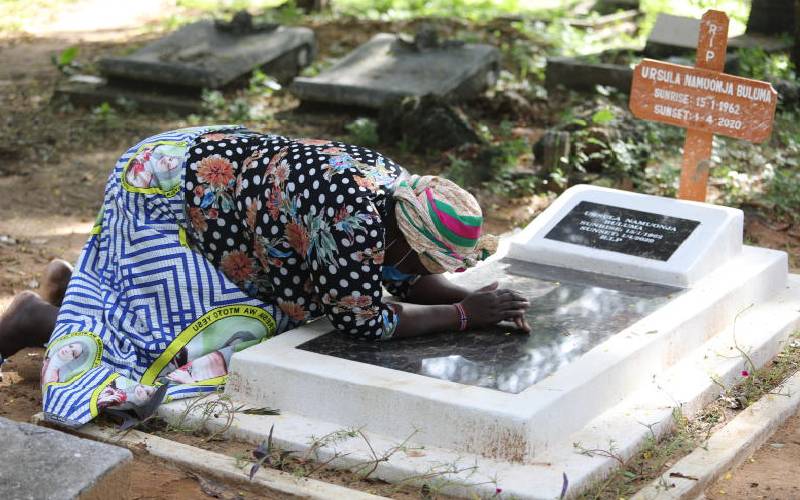×
The Standard e-Paper
Fearless, Trusted News

Brenda Akinyi visits her mother's grave at Mbaraki Cemetery, Mombasa County. Brenda was released from quarantine on Monday April 13, 2020. Her mother, Ursula Buluma, is believed to have died from coronavirus. [Kelvin Karani, Standard]
Seven Kenyans cleared to leave a quarantine facility at Kenyatta University have been detained after they were unable to foot their bills.